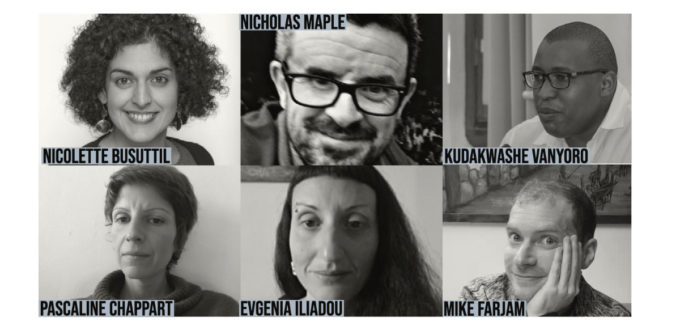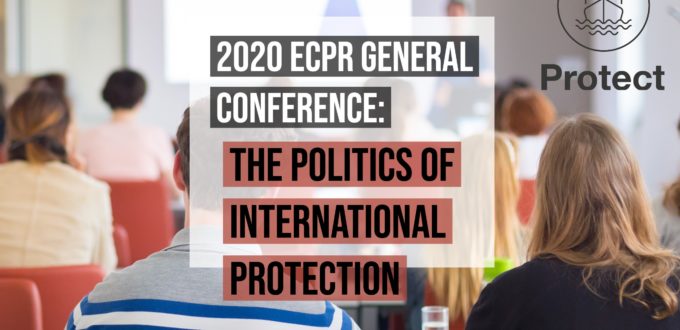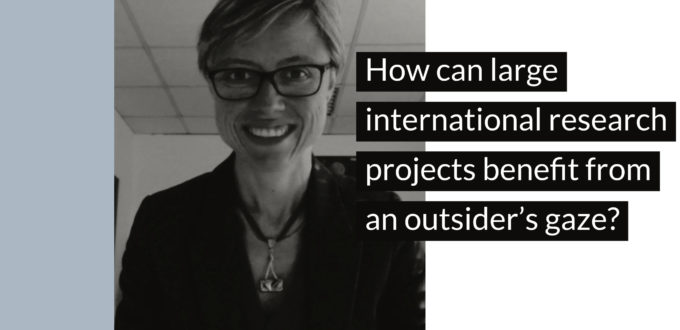Six new researchers have recently joined the PROTECT Consortium: Kudakwashe Vanyoro, Mike Farjam, Pascaline Chappart, Evgenia Iliadou, Nicholas Maple, and Nicolette Busuttil.
EU puts ‘Dublin to bed’ and launches New Pact on Migration and Asylum.
The overcrowded Moria camp has become an image of a failed collective effort to create cross-European solidarity for refugees and asylum seekers. On 23 September 2020 the European Commission launched their New Pact on Migration and Asylum aimed at replacing the heavily criticized Dublin Regulation. But what exactly is the ‘Dublin problem’ – and which solutions do the new pact hold? Four migration researchers offer their views below.
Understanding the inferno on Lesbos: – We need new perspectives on migration to solve this situation
– We need new perspectives on migration to solve this situation.
Anthropologist and Associate Professor at the University of Bergen, Synnøve Kristine Nepstad Bendixsen, shares her reflections on the EU’s hot spot policy, the refugee camp as political and repressive space, the problematic distinction between ‘refugee’ and ‘migrant’, and the dire need for a new turn in Europe’s asylum policy.
Scrutinizing discourses of international protection with Professor Philippe-Joseph Salazar
What follows is a reiteration of the remarks made by Professor Salazar after observing talks and presentations given during PROTECT’s Kick-off Conference and first General Assembly in Brussels on 9 – 10 March 2020. Professor Salazar starts by addressing PROTECT’s involvement in mapping and analyzing discourses of international protection in order to assist the European Commission, […]
Eight months in: What have we been up to?
Eight months have passed since PROTECT’s official project launching. Since then, the PROTECT researchers have been working and researching remotely during the Corona-induced lockdowns. In this article you can explore the status of PROTECT’s individual Work Packages and what is next on the agenda for our researchers.
Who is (un)protected by the law?
– Migration is an important field of law because legal status makes an enormous difference. If you have status as ‘citizen’ you are protected by the law in a completely different way than refugees and migrants.
The virtual 2020 ECPR Conference: explore the PROTECT panel and papers
Political Scientists from across the world are coming together for a virtual edition of the 2020 European Consortium for Political Research’s annual General Conference on 24 – 28 August. PROTECT researcher and Executive Scientific Coordinator, Pierre Van Wolleghem chairs the panel The Politics of International Protection: New Perspectives in the Post-Global Compacts Era on 25 […]
Interviewing PROTECT’s Independent Ethics Adviser Emanuela Ceva:
Eleven partner institutions and Work Packages, nine countries, and three years of cross-disciplinary research: in her role as PROTECT’s Independent Ethics Adviser, Emanuela Ceva’s outsider perspective will assist the consortium in navigating through complex ethical issues and blind spots that may arise along the way: – They may be elusive, but ethical issues are ubiquitous across the entire research actives of large research projects as PROTECT.
PROTECT Expert Forum 13-14 November 2020
Forum title: The Two UN Compacts – Refugees and Migrants: Challenges and Implementation in Europes When: 13-14 November 2020 Where: Online Hosts: Queen Mary University of London Background In 2019 the UN concluded two years of stocktaking and negotiations by adopting the Marrakesh Compact for Safe, Orderly and Regular Migration (The Marrakesh Compact). The Compact […]
“The US is not safe for asylum seekers” – Federal Court of Canada strikes down the Canada-US Agreeme
The Federal Court of Canada has determined that the Canada-US Safe Third Country Agreement (STCA) infringes upon asylum seekers’ right to international protection and has given the Parliament six months to take necessary action. Until then, Canada can continue handing over asylum seekers to the US officials, exposing them to arbitrary detention and the possibility of immediate deportation to the countries where they have fled persecution or other life-threatening situations. The Federal Court should rescind the STCA immediately, not six months from now, say PROTECT researchers, Idil Atak, Zainab Abu Alrob and Jona Zyfi in this blog piece.










